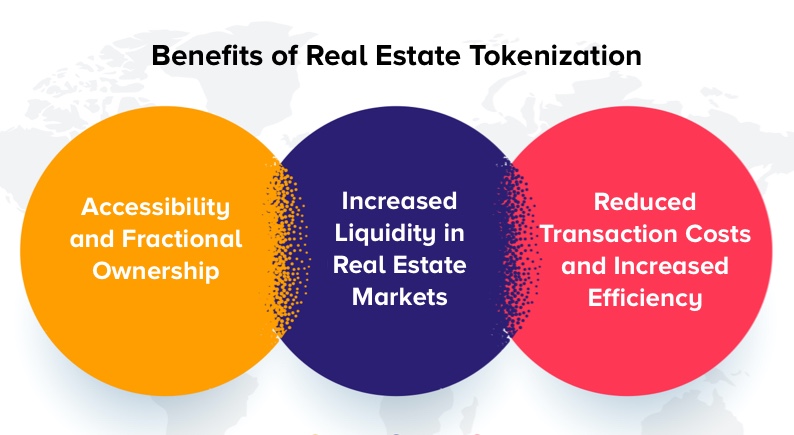What is Real Estate Tokenization and Its Benefits?
Discover how real estate tokenization is transforming property investment. Learn its benefits, including accessibility, liquidity, security, and global opportunities.

The real estate industry has traditionally been known for its high entry costs, slow transactions, and limited liquidity. However, with the rise of blockchain technology, real estate tokenization is revolutionizing the way people invest in properties. By converting real estate assets into digital tokens, tokenization makes property investment more accessible, secure, and efficient. In this blog, we will explore what is real estate tokenization and the various benefits it offers.
What is Real Estate Tokenization?
Real estate tokenization is the process of converting ownership rights of a real estate asset into digital tokens stored on a blockchain. Each token represents a fractional share of the property, allowing investors to buy and sell portions of real estate without needing to own an entire property. These tokens are backed by smart contracts, ensuring security, transparency, and automation of transactions.
For example, a commercial building worth $10 million can be tokenized into 1 million tokens, with each token representing a $10 share of the property. Investors can purchase as many tokens as they want, depending on their budget and investment goals.
Benefits of Real Estate Tokenization

1. Increased Accessibility
Traditional real estate investments require large sums of money, making it difficult for small investors to participate. Tokenization allows people to invest in real estate with smaller amounts, opening the market to a broader range of investors.
2. Enhanced Liquidity
Selling a property can take months due to lengthy legal processes and market conditions. Tokenized assets, however, can be traded on blockchain-based exchanges, providing investors with quicker and easier ways to liquidate their holdings.
3. Greater Transparency and Security
Blockchain technology ensures that all transactions are recorded in an immutable ledger, reducing the chances of fraud and disputes. Every transaction and ownership transfer is visible to all stakeholders, increasing trust in the system.
4. Lower Transaction Costs
Real estate transactions often involve intermediaries such as brokers, lawyers, and banks, leading to high fees. Tokenization eliminates the need for multiple intermediaries by automating transactions through smart contracts, thereby reducing costs.
5. Faster Transactions
Real estate transactions typically take weeks or even months to complete due to legal and financial processes. Tokenization speeds up this process by allowing peer-to-peer transactions with minimal paperwork.
6. Global Investment Opportunities
Investors worldwide can participate in tokenized real estate projects without the barriers of geographical restrictions. This global accessibility increases the pool of potential investors, benefiting both buyers and property owners.
7. Diversification
Since tokenization allows fractional ownership, investors can diversify their portfolios by owning tokens from multiple properties across different locations, reducing investment risks.
Conclusion
Real estate tokenization is transforming the property market by making investments more accessible, transparent, and liquid. As blockchain technology continues to evolve, it is expected to further revolutionize real estate transactions, making them faster, more secure, and cost-efficient. Whether you are an investor looking for opportunities or a property owner seeking new funding methods, real estate tokenization offers a promising future in the world of real estate investments.
FAQs
1. What is real estate tokenization?
Real estate tokenization is the process of converting property ownership into digital tokens using blockchain technology. Each token represents a fractional share of the property, making real estate investment more accessible.
2. How does real estate tokenization work?
A property is divided into digital tokens, each representing a portion of ownership. These tokens are stored on a blockchain and can be bought, sold, or traded, just like stocks or cryptocurrencies.
3. What are the benefits of real estate tokenization?
Tokenization increases accessibility, enhances liquidity, reduces costs, ensures transparency, enables faster transactions, and allows global investments.
4. Is real estate tokenization secure?
Yes, since it is powered by blockchain technology, real estate tokenization ensures transparency, immutability, and security, reducing the risk of fraud.
5. How to choose the right real estate tokenization company?
When selecting a real estate tokenization company, look for one with expertise in blockchain, compliance with regulations, a strong security framework, and a proven track record in tokenizing properties.
What's Your Reaction?

















